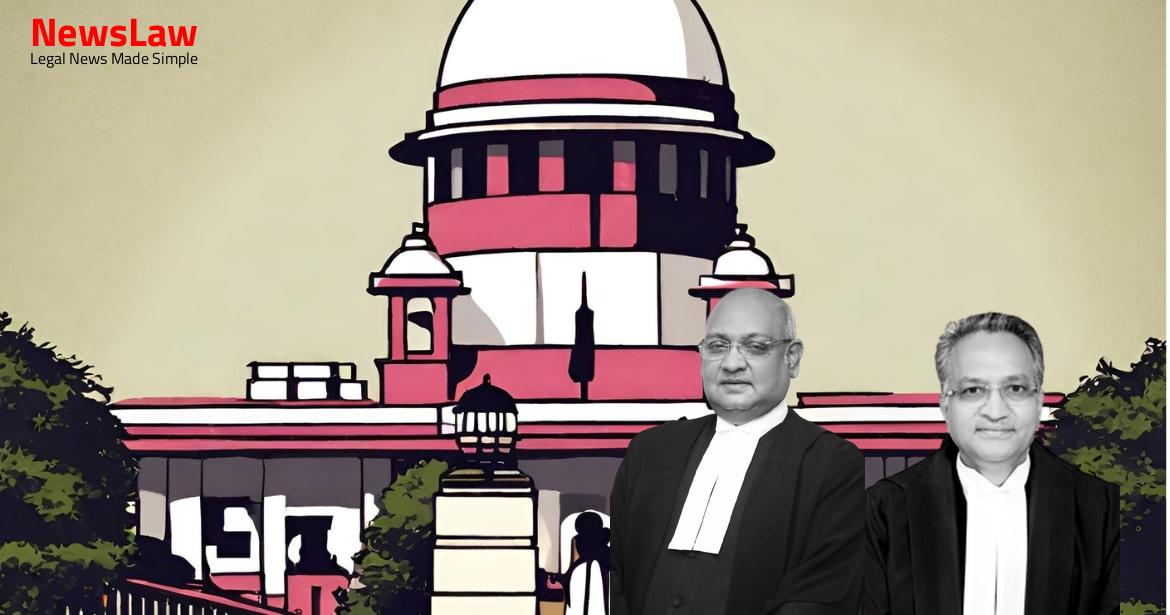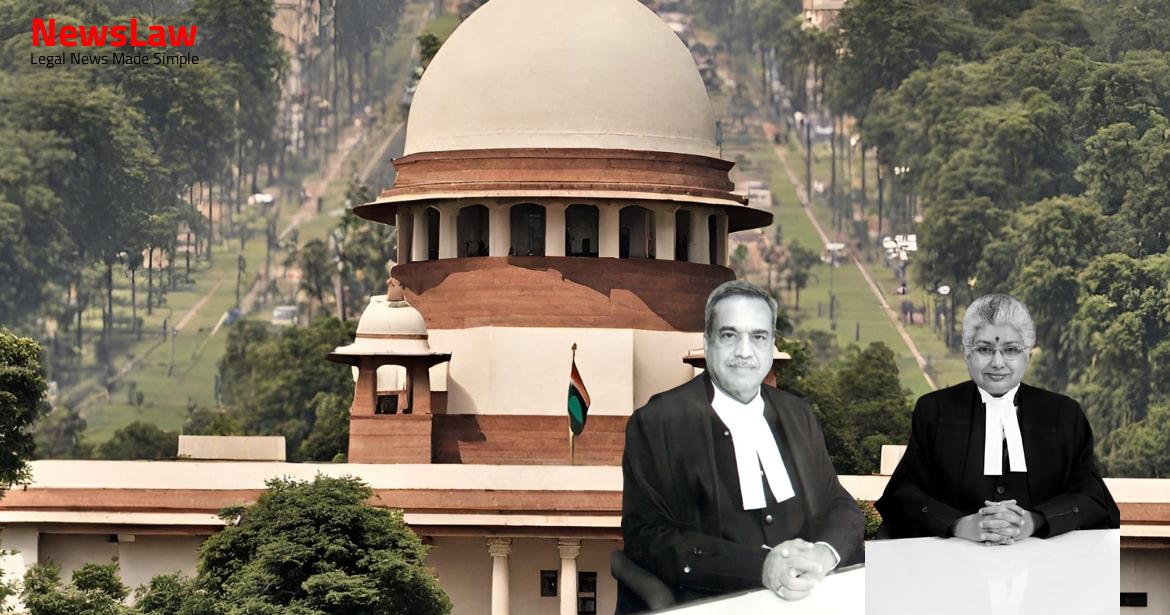In a recent legal case, the court’s handling of the execution of a decree has come under scrutiny due to alleged violations of Order XXI Rule 34 of the Civil Procedure Code. The case highlights the significance of adhering to proper legal procedures to ensure fair and timely enforcement of court judgments. The analysis focuses on the court’s obligations in serving and considering objections to draft documents, such as sale deeds, in accordance with the decree terms. Let’s delve into the intricacies of legal procedure oversight in decree executions.
Facts
- The decree dated 04.01.2013 cannot be executed due to the act and conduct of the decree holders.
- The decree required the decree holders to deposit the remaining sale consideration within one month from the date of passing the judgment.
- The decree specified that the sale deed should be executed and registered in favor of the plaintiffs, as per the agreement to sell Ex-P2.
- The decree mentioned the property as 24 Kanals 2 Marlas, not 42 Kanals 11 Marlas.
- The draft sale deed was not served upon the appellant, which is considered a mandatory requirement.
- The revision petition filed by the appellant was dismissed by the High Court.
Also Read: Interpretation of Suspension Rules in Employment Case
Arguments
- The petitioner’s counsel argues a clear contravention of Order XXI Rule 34 of the Code of Civil Procedure, 1908 (CPC).
- The Court failed to follow the mandatory procedure outlined in Order XXI Rule 34, leading to a potential miscarriage of justice.
- The decree holders did not comply with the decree terms, specifically related to the execution of the sale deed.
- The property involved in the case was originally about 66 Kanals, but discrepancies arose regarding the specific Khewat numbers (346 and 448) outlined in the agreement to sale and the subsequent sale deed.
- The Court’s actions, based on the draft sale deed, resulted in a departure from the agreed-upon property in the adjudication and decree.
- Appellant’s brother has already conveyed title and has no right over the property in question.
- Appellant is being called upon to execute a sale deed for 24 Kanals and 2 Marlas without prejudice.
- The respondents had produced a draft sale deed which the court may have been required to act upon per Order XXI Rule 34.
- Only 24 Kanals and 2 Marlas out of 48 Kanals and 4 Marlas are the subject matter of the decree.
Also Read: Legal Analysis of Assignment and Ratification in Property Law
Analysis
- The court is considering the objections raised by the appellant to the draft sale deed.
- The only available course of action is to have the objections reviewed.
- The respondents filed for specific performance claiming the appellant’s brother had already conveyed his part of the property.
- Proper procedure in legal matters is crucial to prevent miscarriage of justice and ensure timely enforcement of decrees.
- The appellant had sold the property to a second defendant in the suit, leading to the decree for specific performance.
- The court must execute the decree as it is without going beyond its scope.
- Order XXI Rule 34 mandates that the draft sale deed be served on the judgment debtor for objections.
- If objections are raised regarding the draft sale deed not aligning with the decree, the executing court must consider and make any necessary alterations.
- The executing court cannot proceed with the sale deed execution without allowing objections to be filed and considered.
- The appellant’s objections to the execution petition are distinct from objections to the proposed sale deed.
- Execution must be in conformity with the decree’s adjudication to prevent future complications.
- The court must follow the procedure in Order XXI Rule 34 before finalizing the sale deed.
- The impugned order allowing sale deed execution without addressing objections contravenes the provisions of Order XXI Rule 34.
- Order XXI Rule 34 of the Civil Procedure Code is applicable in cases where the decree provides for the execution of a document.
- The decree holder in such cases must prepare a draft of the document, such as a sale deed, in accordance with the terms of the decree.
- The draft document must be delivered to the court, not necessarily directly to the judgment debtor.
- The court will then serve the draft document on the judgment debtor, along with a notice requiring any objections within a specified time frame.
- The court may make alterations to the draft document as it deems fit and eventually execute the document accordingly.
- If registration of the document is required by law, the court will ensure registration as per the legal requirements.
Also Read: Second Appeal Jurisdiction in Punjab and Haryana
Decision
- The court ordered the defendant no. 1 to execute and register the sale deed in favor of the plaintiffs within one month.
- A decree of declaration was passed stating that the agreement to sell and sale deed were illegal and not binding on the rights of the plaintiffs.
- The entire process of executing the sale deed should be completed within four months from the date of the judgment copy being produced before the court.
- The plaintiff is required to deposit the remaining part of the sale consideration within one month.
- If the sale deed is found to be in violation of the decree, it will be set aside, and a fresh sale deed must be executed.
- Further proceedings based on the sale deed dated 11.06.2019 are to be kept in abeyance until a decision is taken by the court.
- The execution court is directed to hand over a copy of the draft sale deed produced by the respondents within two weeks of the judgment copy being presented before the court.
Case Title: RAJBIR Vs. SURAJ BHAN (2022 INSC 247)
Case Number: C.A. No.-001700-001700 / 2022



